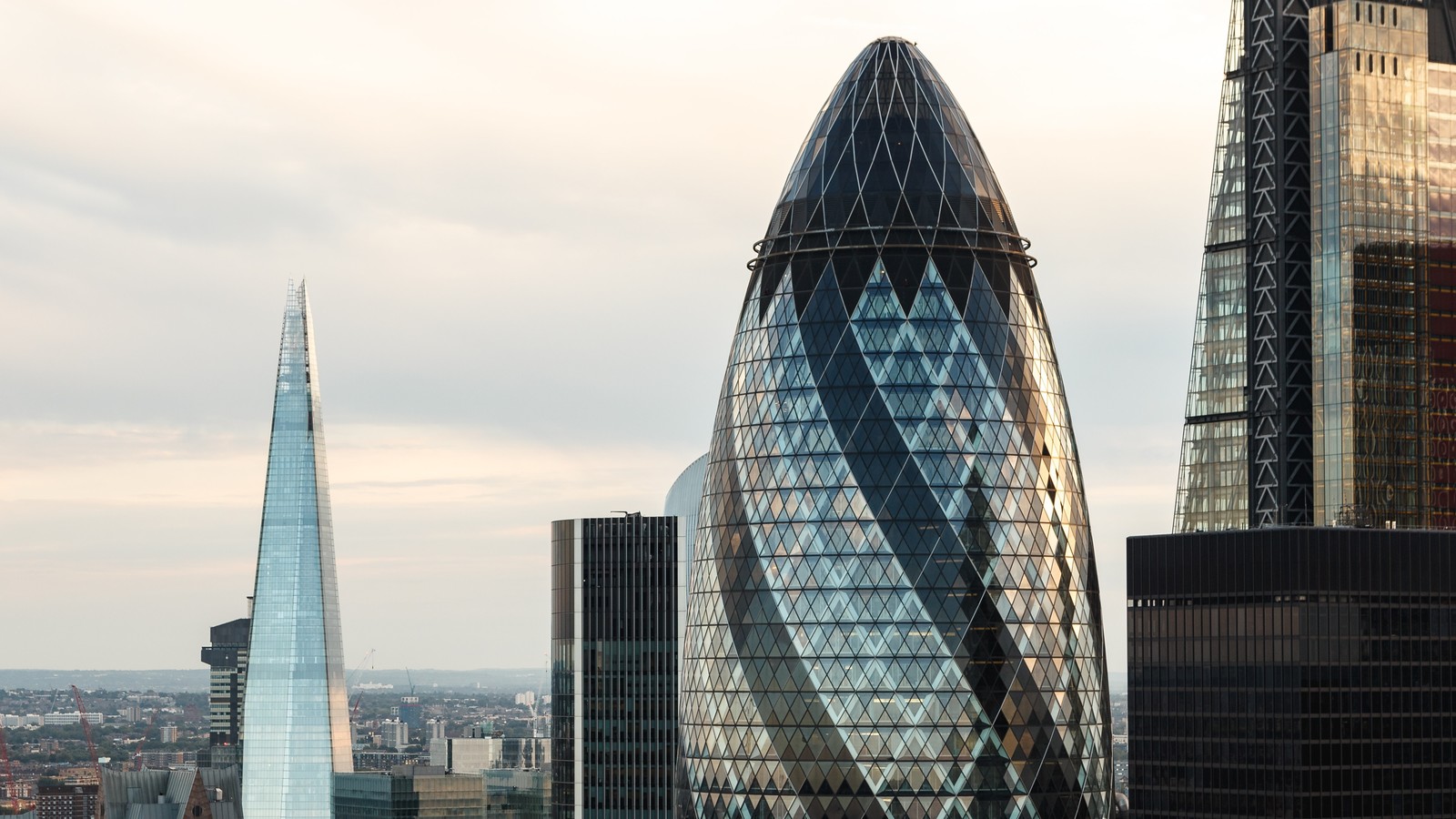Since the early 2000s, The Apprentice has been a fixture on our television screens. There are few shows about business that have its reach or influence. Even in its 16th series, the show fronted by Sir Alan Sugar still draws millions of viewers each week. Head over to Twitter at 9.30 pm this Thursday and you’ll see #TheApprentice trending and thousands of tweets dissecting the candidates’ performance during that week’s task – often to great hilarity.
If you missed the #apprentice This was the logo the boys designed for a luxury cruise line 👀😳😆. A rotten banana doing a press up? 🤷. Or something you might step on? pic.twitter.com/ghfawFKRrq
— Rod Bishop 💎 (@rodbishop15) January 6, 2022
Whilst I’m someone who tunes in and still enjoys the show, I’m also a subscriber to the view that The Apprentice is an appalling representation of the world of work and business. People have said similar things for years, but those sentiments now ring louder than ever. Perhaps it’s because the world has moved on and the show feels like a not-so-welcome throwback to the cruel and conflict-driven programming that eventually turned us off the X Factor and Big Brother? More likely, the show has always had its flaws, it’s just we’re all a little more attuned to its faults in 2022. Let’s dive in and take a look at some of those faults…
The premise
In case you don’t know the premise to The Apprentice, here goes…
16 candidates – billed as the UK’s top business minds – are split into teams and pitted against each other across different weekly tasks. With a different team leader at the helm each week, we see the candidate’s business acumen put to test in a variety of ways, whether that’s flogging fish on windswept Cornwall beachfronts to developing mobile apps in swanky Soho studios.
About two-thirds into the episode, the backdrop switches to the boardroom and we find out which of the hilariously named teams have won the task. The losers then face a showdown with Lord Sugar (more on that later) where they fight it out to avoid the dreaded words: ‘You’re Fired’. At the end of the series, one of the candidates is chosen to be Lord Sugar’s apprentice.
After 16 series of this, though, well, it’s just a bit tired. The only major change to the show, other than Lord Sugar’s assistants, is the prize on offer: the candidates now pitch to win investment for their business plans rather than getting a job with Lord Sugar. (So, the name ‘The Apprentice’, yeh, doesn’t really work.)
If you’ve watched one series of The Apprentice, you’ve more or less seen every type of scenario play out; the domineering team leader who shouts down everyone else, the sub-team who go off and ignore their brief, the arguments over who will lead the big pitch, and the fun and games as the candidates throw each other under the bus in the boardroom.
The candidates
If the premise of the show feels tired, the pool of quality candidates seems to have dried up in recent times. Cast your mind back to the first few series and we had bonafide highfliers. In the last few series, it’s hard to make this case. Whilst much fun would come watching the candidates spout ridiculous self-aggrandising statements to the camera (“My friends call me AK47 because I’m a killer salesperson”), the gap between these statements and reality has grown wider.
Why does this matter? In a way, it doesn’t matter. Entertainment-wise, the best moments of the show are watching the teams unravel as they stumble from one mishap to another. But if we judge the show to be doing something worthy and educational, then maybe it does matter. Lord Sugar certainly feels this is part of the show’s remit. “With the greatest respect to the BBC, they really do not understand how great this programme is as far as creating enthusiasm amongst young people and encouraging people to get into business” Sugar declared to the Radio Times.
Winning teams often resort to questionable methods – from fudging market research to spouting outright lies – to win a deal or make a quick buck. Whilst poor judgement and bad decisions are often exposed, plenty of times it goes unpunished.
Worst of all, the candidates succumb to the trap at the heart of the show – that business is dog-eat-dog and you need to look after number one. If the candidates are guilty of showing poor business acumen, that’s nothing compared to the way they treat each other – shouting down ideas, hogging the credit, passing the buck, etc. Behaviour that is unlikely to win you any long-lasting business relationships. Is this really the best message to send out?
The tasks
Each week the candidates are sent to a location where they’ll be briefed by Lord Sugar. The link with the location is usually tenuous at best. (“I’m here at the Tower of London, where the Crown Jewels are kept. This week’s task is all about wedding planning”.) The tasks will invariably involve aspects of product development, branding, advertising, presenting, pitching, and sales. Others are much more straightforward such as the scavenger hunt where candidates are tasked with procuring items on a list as cheaply and quickly as possible.
This last task is a good one to start with. The scavenger task has always bugged me.
- The candidates are stuck using the yellow pages. I mean, come on, I get we’re trying to make it more difficult – but why can’t we do something that acknowledges the real world in 2022 and the existence of the internet?
- The negotiations are just stupid. Once finding an unsuspecting trader, they are then subjected to insulting low-ball offers to varying degrees of success depending on the charm of the candidates.
- There’s a film crew following them around. It’s hard to judge the candidate’s negotiating prowess when we know how differently people tend to respond when a camera is shoved in their face.
- Traffic. One of the main variables for success or failure is how well the candidates negotiate London traffic. Did no one tell them about the Tube?
In other tasks, the candidates are sent off to work with different creative professionals who are then given the thankless job of executing briefs on the spot. Cue many a scene where the candidates spout half-baked ideas and meaningless buzzwords at graphic designers and web developers, all whilst shouting over their teammates. Those not shouting are usually accused of not contributing when it comes back to the boardroom, or, conversely, the teams that do find harmony fall into the trap of design by committee. Invariably the lesson I take away is don’t involve too many people in the creative process – you’re better off stamping your vision than trying to appease everyone in the room.
Another frustration is that the tasks often test things that you frankly wouldn’t care about if you were assessing an apprentice or investment pitch. At what point in your business career will your credentials be bolstered by filleting fish, conducting historical tours, recording voiceovers, or starring in adverts? These elements of the tasks provide plenty of entertainment but undermine any sense that we’re witnessing a real-world business project play out.
The boardroom
We’ve already spilled into talking about the boardroom as it’s arguably the show’s biggest offender. The boardroom is where the show turns into something genuinely unpleasant. It’s here where candidates turn on each other in a bid to save their necks. Gone is any sense of shared responsibility, instead scapegoating and deflection are legitimate tactics.
Yes, we know it’s TV and probably impossible to have a meaningful deconstruction of the task, but the simplistic blame-gaming of the boardroom is immensely frustrating. Instead of an informed discussion, we’re served anecdotal ‘he said, she said’ lines of defense, and rarely does anyone own up to their mistakes. That’s the last thing you want to do.
Also simplistic is the way the tasks are often judged only on which team makes the most profit. It is quite possible to rip off customers and deliver a terrible service but as long as you make more money on the day you win the task. I put it to you that come day two, there’ll be no return customers and word of mouth won’t be kind to your future prospects.
The boss
And it’s for that reason, with regret, that I now have no choice but to talk about the boss.
In the time since the show has been on the telly, Sir Alan Sugar has become Lord Sugar – the title to which the candidates now address him. These days he is best known for being the boss on The Apprentice rather than his most successful business venture, Amstrad. But that’s probably not surprising. The glory days of Amstrad and its genuinely influential role in the rise of home computing will be more familiar if you grew up in the 80s. It’s fair to say Lord Sugar isn’t the hottest property in the business world in 2022. He’s an entertaining figurehead for the show and the writers feed him some excellent putdowns and puns which he delivers with aplomb. But maybe it’s time for a fresh face?












